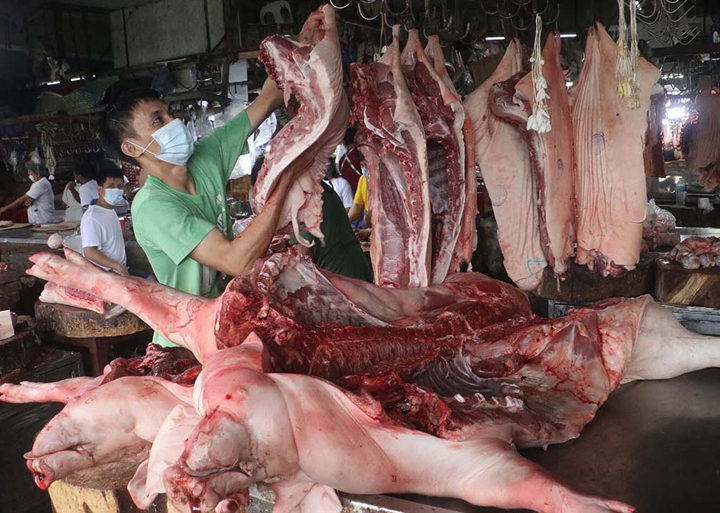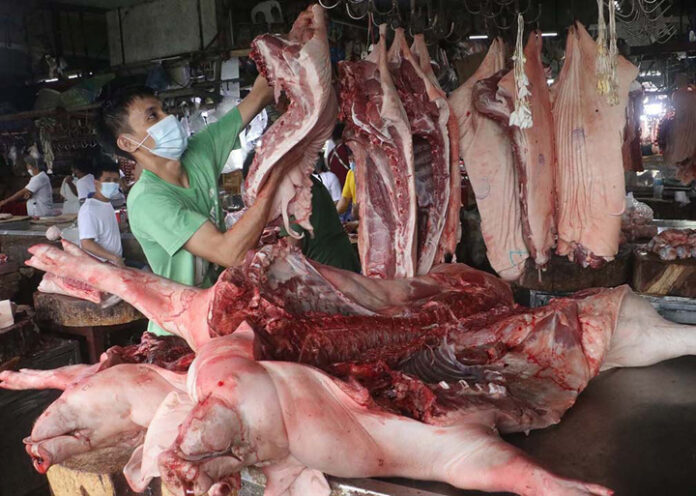
PRESIDENT Duterte has reduced the tariff for pork imports despite the objection of some lawmakers and local hog raisers. Critics had said it would unduly pad the profits of importers without resolving the inflationary impact of a pork supply crunch, and cripple the already reeling local sectors.
In his Executive Order 128, Duterte temporarily adjusted the rate of duty of imported fresh, chilled or frozen meat of swine to address the shortage of pork in the country and stabilize its price in the local market.
This, after the African swine fever (ASF) devastated local hog farms, which killed or led to the culling of thousands of pigs, straining the local supply of pork.
The President’s move comes as the Department of Agriculture (DA) is imposing a suggested retail price (SRP) on imported pork effective April 9, in a bid to keep prices stable as the price cap expires today (April 8). See related story
“The government recognizes the need to immediately address the current shortage in swine meat, and endeavors to strengthen food supply to ensure that Filipinos have equitable access to food, particularly meat,” Duterte said in his two-paged issuance on Wednesday.
His decision was based on the recommendation of the National Economic and Development Authority (Neda) Board to adjust the most favored rate (MFN) on meats of swine falling under the Asean Harmonized Tariff Nomenclature (AHTN) 2017 heading 02.03.
During the first three months of effectivity of EO 128, the MFN rates of duty for in-quota pork will be reduced to 5 percent from its current rate of 30 percent. It will then be gradually raised to 10 percent during the 4th to 12th month of effectivity of the new issuance.
For out-quota pork products, the following rates will be implemented: 15 percent during the first three months of effectivity of EO 128; 20 percent during the 4th to 12th month of effectivity of the issuance.
A year after the implementation of EO 128, the original tariff rate for in-quota and out-quota imported pork will be reverted to their original rates at 30 percent and 40 percent, respectively.
EO 128 will take effect immediately upon its publication in the Official Gazette or in a newspaper of general circulation.
Members of the Senate and the House of Representatives had urged President Duterte to reconsider lowering tariff since it could flood the local market with imported pork.
They noted this will be detrimental to local hog raisers who are still reeling from the effects of the ASF.
Image credits: Nonoy Lacza
Read full article on BusinessMirror

